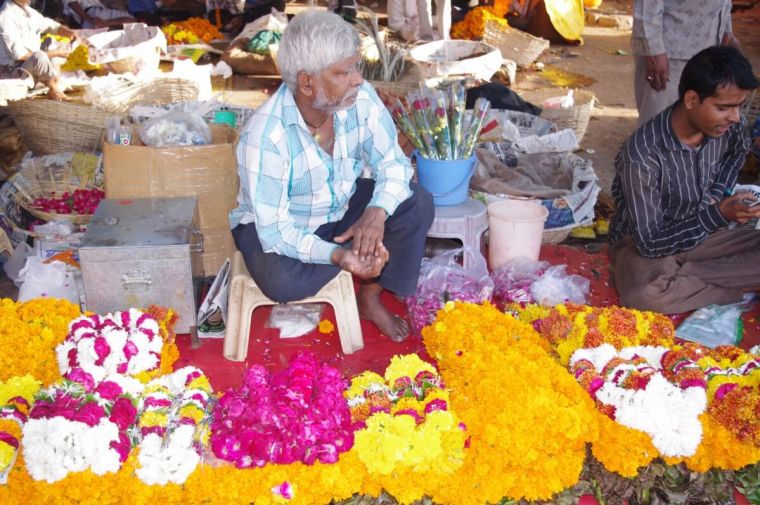Interfaith encounters: Why respecting other faiths doesn't mean compromising your own

A couple of years ago I had what I confidently expected to be the holiday of a lifetime. For two weeks I was that traditionally well-meaning but awkward individual, the Englishman abroad. It was India.
As well as a large hole in the household budget, that holiday blew a larger one in some unsuspected preconceptions. One of these was that the Taj Mahal might be a bit cheesy; it's amazing, but that's another story.
As a Baptist minister, I'm what you might call professionally curious about religion. There are plenty of Hindus in Britain, but I've never seen much of Hinduism here and was hoping to find out more about it.
What challenged me was not the content of my discoveries, though. Hinduism has 36 million gods (yes, really), Ganesh is the elephant one – I vaguely knew that and I could have found it out from a textbook, anyway. I was struck more by some of the people I met. One of them stands out. Our guide in one of the cities was particularly devout and made a point of touching the doorsteps of the temples he showed us, pausing for moments of personal devotion and occasionally talking very naturally about what his faith meant to him.
We visited a particular temple at which the congregation was waiting entranced, singing a low, repetitive chant in front of a closed curtain. He asked us to wait for a few minutes. Not sure what to expect, we agreed. The curtain was drawn back and the crowd exploded into a shout of rapture as the image of the goddess Kali was revealed: clearly it was a moving and meaningful experience for them.
As we left, our guide draped garlands of marigolds around our necks and told us we shouldn't just discard them; they had been dedicated to the goddess and had to be laid beneath a particular tree, whose name I'm sorry to say I can't remember.
Here's the thing, though. I am an evangelical Christian, believing in the uniqueness of Christ, the incarnate son of God – and I didn't once try to convert our guide. I wore a garland dedicated to Kali, and at the end of the day I didn't just chuck it in the bin. I gave it to our driver to dispose of reverently, and if I knew which tree to lay it under I would gladly have done so myself.
So, did I compromise my faith? I don't think so.
This is a plea for that under-rated theological virtue: politeness. I was in the guide's territory; not just geographically but spiritually. My role was to listen. The garland was a gift and it was appropriate to respect it.
I was a tourist, and this hardly counts as deep inter-faith experience. But for readers privileged to enter further into the lives of people of other faiths, let me commend politeness as a good place to stand. In this context it means, I think, respecting the other person as a person, with all their intellectual and spiritual apparatus, and putting questions of ultimate truth aside until we are mutually secure enough to talk about them.
God, I believe, takes the long view: in our politeness, perhaps we are reflecting something about him.
Follow @RevMarkWoods on Twitter.











